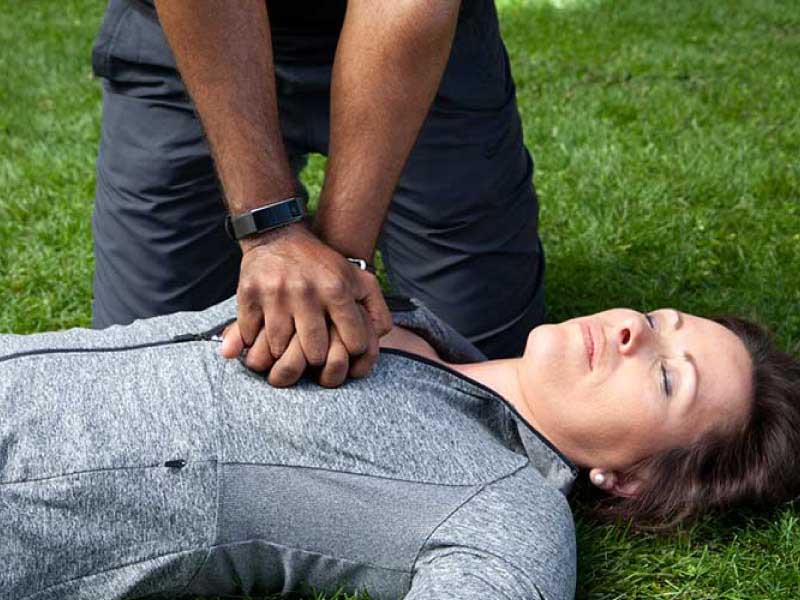Why people fear performing CPR on women – and what to do about it
By Laura Williamson, American Heart Association News

Women are less likely than men to receive CPR from a bystander. But why?
The reluctance, new research suggests, may be fueled by worries of being accused of sexual assault or doing physical harm. Knowing people's secret fears is the first step to dispelling them, experts say.
The insights come from a new survey of 520 men and women who were asked to rank potential reasons someone might not want to provide bystander CPR to a woman, based on the sex of the rescuer. The survey built upon previous findings from the same research team that had respondents use their own words to describe why someone might hesitate to provide lifesaving care to a stranger.
The new survey compiled the open-ended responses into themes, which respondents were asked to rank. Both men and women said the biggest reason male rescuers would refrain from giving CPR to a woman was fear of being accused of sexual assault or inappropriate touching, whereas the biggest reason a female rescuer might not provide assistance was fear of harming the victim. Less often, respondents said a male or female rescuer might have a misconception that women don't have cardiac arrests or think a woman was being overdramatic.
The research was presented earlier this month at the American Heart Association's virtual Resuscitation Science Symposium. It is considered preliminary until published in a peer-reviewed journal.
"Hopefully, this information can be used to help us eliminate the biases that people may have," said Shelby Shelton, a professional research assistant at the University of Colorado Department of Emergency Medicine and one of the investigators.
More than 350,000 sudden cardiac arrests occur outside the hospital each year, according to AHA statistics. Though the vast majority of these occur at home, about 19% in adults and 13% in children happen in public. Bystander CPR can double or triple a person's chances of survival if started immediately.
But women are less likely to get such help. A 2018 study published in Circulation: Cardiovascular Quality and Outcomes found 45% of men received bystander CPR compared with only 39% of women. Men had 23% higher odds of survival than women.
"Everyone deserves to get CPR and a chance at a great outcome when they collapse in public," Shelton said. "We want to encourage strong public education around that core message."
In the new study, researchers were surprised to find that men and women shared the same perceptions of what might deter a rescuer, said Dr. Sarah Perman, the study's senior investigator and an emergency physician. She is an associate professor of emergency medicine at the University of Colorado School of Medicine. Respondents were asked how they perceived others might feel giving a woman CPR, rather than about their own feelings, to remove any reluctance to answer honestly.
Framing the question that way "could help uncover those hidden fears that people may have," said Dr. Ashish Panchal, a professor of emergency medicine at the Ohio State University Wexner Medical Center, who was not involved in the study. "And if we have a better idea of these underlying, hidden feelings that people might feel uncomfortable talking about, it gives us a better idea of how to train people."
For example, he said, "the probability of injury from bystander CPR is really, really low. Knowing the perception is there that helping someone might hurt them, we now know we have to combat this."
Likewise, said Perman, people need to be assured it's OK to touch a woman you don't know if you are helping someone who might otherwise die. "A woman at the gym or the grocery store who is in medical distress is clearly a scenario that warrants public assistance," she said.
This type of data also could be useful for training 911 dispatchers, Panchal said. "These are the people who are giving instructions that guide people to perform CPR in real time. If they understand the fears people have, they can help to dispel those fears as they are guiding someone on the phone about what they need to do."
Find more news from Scientific Sessions.
If you have questions or comments about this story, please email [email protected].





